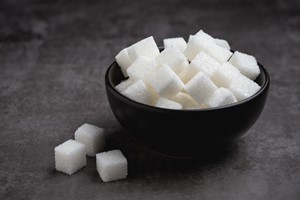The food industry is undergoing a transformative shift, fueled by a growing consumer demand for natural, sustainable, and ethically-sourced ingredients. This shift has given rise to a range of exciting innovations, one of which is the emergence of plant-based emulsifiers. These natural alternatives to traditional, often animal-derived emulsifiers, hold significant promise for the future of food production.
A Boon for Food and Consumers
Plant-based emulsifiers offer a compelling value proposition on multiple fronts. Their natural composition resonates with consumers seeking clean-label ingredients, aligning with trends towards healthier and more transparent food choices. Additionally, these emulsifiers cater to diverse dietary needs, being readily adaptable for vegan and allergen-free formulations. This inclusivity expands market reach and fosters a more equitable food system. Furthermore, the renewable and sustainable nature of many plant-based sources contributes to a more environmentally-conscious approach to food production, minimizing waste and resource depletion.
Challenges and Considerations
Despite their undeniable advantages, plant-based emulsifiers present certain challenges that require careful consideration. While some options, like lecithin, excel in emulsifying fats and oils, they may not offer the same level of thickening power as traditional alternatives. This necessitates meticulous formulation and potentially higher costs. Additionally, some plant-based emulsifiers may impart subtle sensory changes, necessitating adjustments in recipes to maintain familiar and pleasant textures and flavors.
Collaboration and Innovation for a Plant-Powered Future
The obstacles facing plant-based emulsifiers are not insurmountable. Research and development are actively exploring ways to enhance their performance and functionality. Innovative combinations of different plant-based ingredients, such as pea protein and xanthan gum, are demonstrating promising results in terms of both emulsifying and thickening capabilities. Additionally, collaboration between food scientists, farmers, and ingredient manufacturers is crucial to ensure the consistent availability and affordability of these natural alternatives.
Exploring the Types of Plant-Based Emulsifiers
The world of plant-based emulsifiers is not a homogenous one. Different types excel in specific roles, offering a diverse toolkit for food creators. Lecithin, derived from soy or sunflower, reigns supreme in emulsifying, while guar gum, xanthan gum, and locust bean gum are the thickening champions. Emerging stars like pea protein and faba bean protein offer both emulsifying and protein-boosting capabilities. Starch, a familiar kitchen staple, can also play an emulsifying role, lending structure and moisture retention to baked goods. And the potential doesn't stop there; algal extracts, with their sustainable edge, and even fruit peels are being explored for their emulsifying properties.
Embracing the Promise of Plant-Based Emulsifiers
The rise of plant-based emulsifiers marks a significant step towards a more ethical, sustainable, and inclusive food system. While challenges remain in terms of performance, cost, and sensory perception, the potential benefits are undeniable. Through continued research, innovation, and collaboration, we can unlock the full potential of these natural alternatives, paving the way for a truly plant-powered future on our plates.
This article provides a comprehensive overview of the topic, presenting the advantages, challenges, and future possibilities of plant-based emulsifiers. It highlights the multifaceted nature of this emerging technology, emphasizing its potential to shape the future of food. By embracing the promise of plant-based emulsifiers, we can contribute to a more sustainable and equitable food system, while delighting consumers with delicious and ethical choices.














